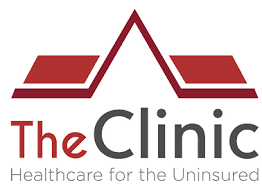The Clinic: A culture of caring has created a safe space for community
 July 16, 2019
Category: Column, Featured, Medium, Purpose
July 16, 2019
Category: Column, Featured, Medium, Purpose
When The Clinic, a free medical center in Phoenixville, started a new patient fund last year, they chose to call it the 143 Fund. The number has multiple meanings, but all lead back to the kind of care afforded at the organization.
“143 is a number with a lot of significance to The Clinic”, said Beth Flor, director of development. “Our home for the last 17 years has been 143 Church Street in Phoenixville, in a building that feels more like a family home than a medical clinic. The 143 Fund is the name that we’ve chosen for our new patient care fund because we spend about $143 on each patient visit, with over 8,000 patient visits each year. This fund saves lives every single day.”
But there’s more. “It takes one letter to say I and four letters to say love and three letters to say you. Fred Rogers’ favorite number was 143, because to him, it stood for love,” Flor said. “The spirit of Fred Rogers can be felt every day at The Clinic — opening our doors, caring for our neighbors, cultivating kindness…spreading the love.”
Since opening its doors in 2002, The Clinic has cared for more than 130,000 patients who are uninsured or underserved in the Greater Phoenixville area.
Located in a refurbished church rectory, the atmosphere is unlike most peoples’ idea of a free clinic. “Patients constantly tell us that they are welcomed warmly by everyone, from the moment they walk through our doors,” said Lew Osterhoudt, the organization’s executive director. “Our atmosphere is homelike and friendly, unlike many doctors’ offices which can feel clinical, cold and businesslike. We provide old-fashioned medicine in a nurturing setting.”
That setting contributes to putting even the leeriest patients at ease.
“The Clinic was founded on a model of not asking a lot of questions. If you are sick, we will see you,” Osterhoudt said. “Despite the recent political climate, we have seen an increase in numbers of Hispanic patients. We have regular volunteers who are bilingual and very involved in the local community, and they have spread the word that The Clinic is a safe place.”
Volunteers and staff also feel nurtured at The Clinic. “We have a very small staff, so we do what we can to support and celebrate each other,” Flor said. “We are also fortunate to have over 120 volunteers who provide over 13,000 hours of medical and clerical services to The Clinic each year. Some of our volunteers have been here since the day we opened in 2002! The Clinic’s mission is deeply personal to all of us, so it’s rather easy to stay on the same page.”
Osterhoudt outlined some of the ways the organization works to create a good workplace for staff and volunteers. “We try to hold regular socials for our staff and volunteers off-site. That gets harder to do as we become increasingly busier, but we find it’s an important way to stay connected to each other,” he said.
He also tries to personally thank to staff and volunteers on a daily basis. “We couldn’t exist without the dedication of our volunteers, and they need to know that they are appreciated,” he added. “Once a year we hold a volunteer reception when we give out service pins and door prizes. I was a volunteer for five years before I joined the staff, and I wear my five-year pin proudly at every event.” 
John Enyart, the board president, explained that the culture of The Clinic is visible in both the mission and the logo. “Our mission is that ‘The Clinic provides quality health care to the uninsured and underserved, in an atmosphere that fosters dignity and respect,’ and our logo includes the warm and inclusive roof of a home. The basic symbols of who we are actually transmit a nurturing message, even before a patient arrives.”
The Clinic does not charge for its services, so to drive fundraising, every staff member and volunteer is considered a part of the fundraising team.
“Our Associate Medical Director, Jacki Tully, is a rock star,” Osterhoudt said. “A few years ago, we started inviting her to participate in foundation site visits. She describes working here as ‘the job of her life’ and she can give practical stories of the difference we make to patients.”
The staff give to The Clinic through payroll deductions, and the volunteers participate in every fundraising event. According to Osterhoudt “even the patients will give monetary gifts to ‘pay it forward.’”
And that culture of philanthropy, he added, is what enables The Clinic’s culture of caring.
Project
The Workplace Month 2019Trending News









